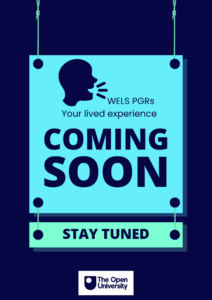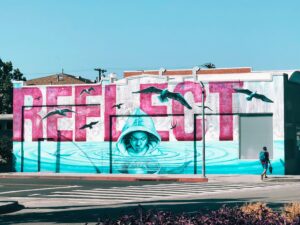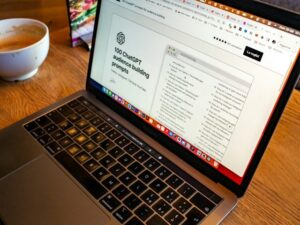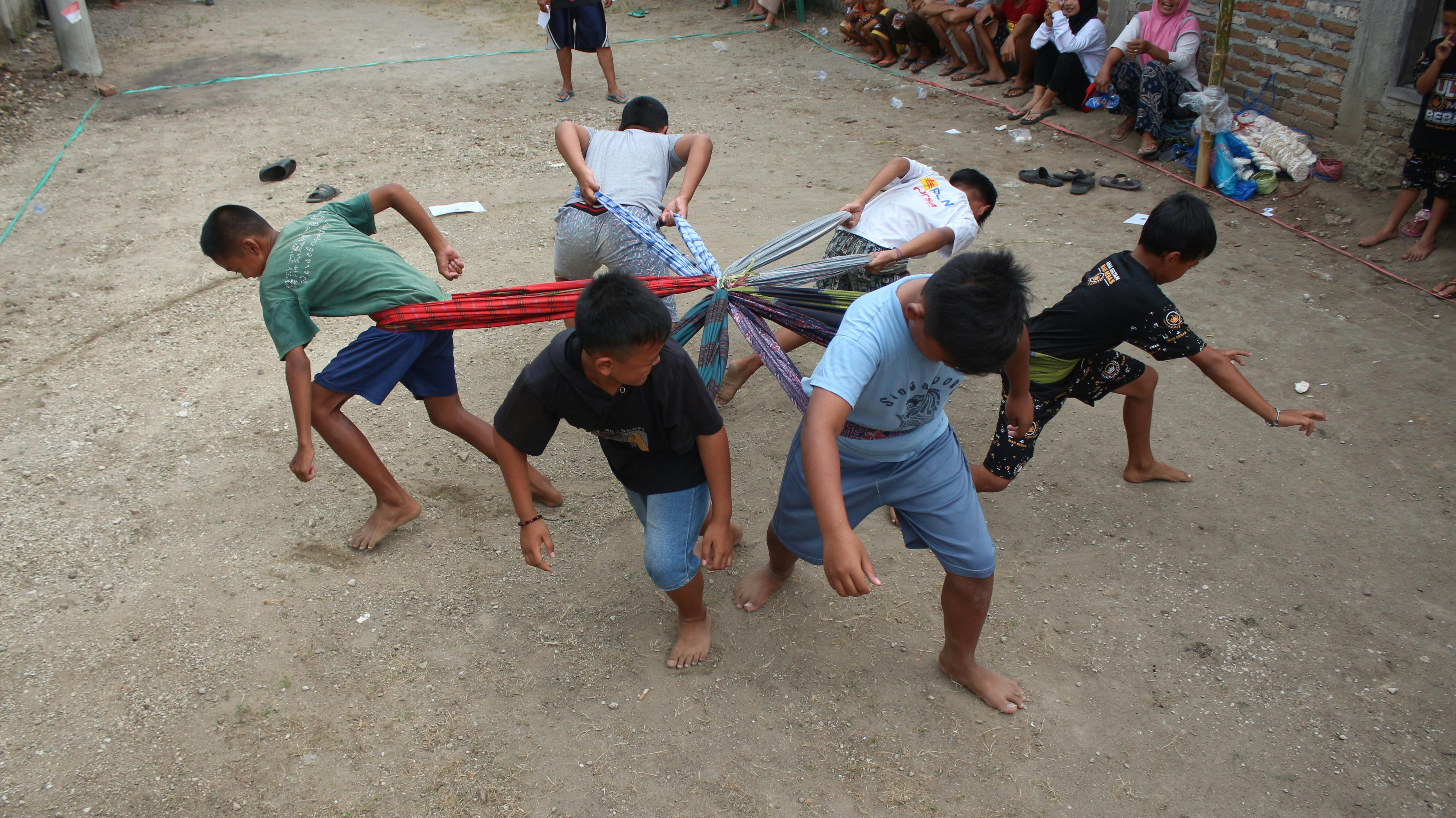
I was warned in the initial weeks of my doctoral programme, during induction, that my research title would inevitably change over time. Especially in the first few months. This was reassuring as moving from a research proposal into the serious business of being a postgraduate research (PGR) student is a whole new territory. My original title, and therefore my focus changed massively once I began the literature review process. It followed new directions, took on wider views before returning close to my original plan. I now had fewer travel bags, but each was much heavier.
The role of PGR students is to create their own ‘new certainties’ and make a sound contribution to an existing body of knowledge. But choices need to be made. To seek out new pathways through a familiar landscape, striking out in a new direction? But familiar landscapes may turn out to be well-travelled lanes with few opportunities for new explorations apart from rutted and stony tracks. Or to venture into unknown, unmapped territory where progress may be exacting, even overwhelming.
Choice, problems and implications:
- Could the route we take affect how we benefit ourselves as researchers?
- Could choosing between familiar or unexplored territory shift the benefit focus from our ‘research’ to ‘ourselves as researchers’?
- Developing ourselves as researchers enhances our research abilities.
- Developing our research skills improves our standing as researchers.
- Is choice dependent on our career path or our research specialism? On our own image of ourselves as researchers? Or our research stakeholders?
Setting out and views from established researchers
Postgraduate research is about action rather than attitude. Its nature is to review current belief or knowledge and to uncover the gaps that will determine our position for new study. But is this realistic? Brunet argues that the journey “has important consequences on a student’s current and future professional life”, (Brunet, 2022, p. 1032), and active journeying towards a professional goal is sufficient. For Leshem the journey is a “transition phase of developing new roles” (Cast, 2003, cited in Lesham, 2020, p. 170), and underscores a fundamental characteristic as “identity construction, rites of passage, tensions and resolutions” (Wisker et al., 2010, quoted in Lesham, 2020, p. 170). It is much more about attitude, building a research identity as the ‘student’ transitions into ‘research student’ and emerges as ‘researcher’.
PGR students have charge of their research because ultimately the prize at journey’s end is theirs. To be accepted into the PhD programme there is an expectation that your title and research questions are decided prior to your ‘upgrade’ assessment. You’ve scoured the literature, submitted your report, and perhaps presented your research to fellow academics before the upgrade viva. My understanding is of a finality, a shutting of the gate to further exploration just as your doctoral journey is confirmed. An expectation to keep to a focus that is largely uninformed at this stage, is a big ask.
Owens, et al. (2019) found that many doctoral students remain unclear about the outcomes from these deciding way-markers and recommend “providing opportunities for the development of a number of personal qualities as well as the professional profile of the students” (Owens, et al., 2019, p. 109).
Where next?
Continuing literature reviews is a doctoral research requirement and over the following two to six years there may be new avenues of exploration and new knowledge in our field. We may have new questions, a new focus.
Perhaps your doctoral journey is towards becoming a professional academic, treating the process as a project in your career development (Brunet, 2022). You’ve maintained your focus, followed the guidebooks, and avoiding unmapped paths. You arrive satisfied, having achieved your quest. You might explore or relax by the pool? Is this enough?
Perhaps your drive for research and to develop yourself personally and professionally is powered by a passion for learning (Mantai, 2019). Taking detours made your journey more challenging yet rewarding. Reaching your destination only leaves much more to explore. Will you be satisfied?
Quest or journey? Answers on a postcard.
As novice researchers is there intrinsic value in a quest that benefits a professional goal? Can a doctoral journey conceived from a desire for new knowledge, sharing insights, and challenging established perceptions succeed?
Should the choice be polarised when, ultimately, the doctoral research goal is to avoid stepping into others’ footprints, to face the challenge of discovery head-on, and to offer inspiration to those who follow?
(Words, 745)
References
Brunet, M. (2022) ‘Conducting a PhD as a project: sharing insights from my doctoral journey’, International journal of managing projects in business, 15(7), pp. 1032–1047. Available at: https://doi.org/10.1108/IJMPB-08-2021-0212.
Leshem, S. (2020) ‘Identity formations of doctoral students on the route to achieving their doctorate’, Issues in educational research, 30(1), p. 169-182. Available at: https://www.iier.org.au/iier30/leshem.pdf
Mantai, L. (2019) ‘“Feeling more academic now”: Doctoral stories of becoming an academic’, The Australian Educational Researcher (2019) 46:137–153. Available at: https://doi.org/10.1007/s13384-018-0283-x
Owens, A. et al. (2020) ‘Student reflections on doctoral learning: challenges and breakthroughs’, Studies in graduate and postdoctoral education, 11(1), pp. 107–122. Available at: https://doi.org/10.1108/SGPE-04-2019-0048
Marilyn Long
 I am a first year, full-time PGR student in the IET school. I am an autistic researcher, and my focus is to investigate inclusive provision and support for autistic students in higher education. I first studied with the OU in 1980 and since then gained my B.Ed degree and worked as a Primary school teacher, Early years co-ordinator, and staff development manager. After a gap of almost 20 years I enrolled for PG study with the OU in online and distance education before applying for a place as a PGR student.
I am a first year, full-time PGR student in the IET school. I am an autistic researcher, and my focus is to investigate inclusive provision and support for autistic students in higher education. I first studied with the OU in 1980 and since then gained my B.Ed degree and worked as a Primary school teacher, Early years co-ordinator, and staff development manager. After a gap of almost 20 years I enrolled for PG study with the OU in online and distance education before applying for a place as a PGR student.
 Back in February, WELS PGRs may have seen an email from Dr Inma Alvarez, Director of Postgraduate Research Studies and Dr Carol Azumah Dennis, Director, Praxis announcing a new project exploring the lived experiences of WELS PGRs.
Back in February, WELS PGRs may have seen an email from Dr Inma Alvarez, Director of Postgraduate Research Studies and Dr Carol Azumah Dennis, Director, Praxis announcing a new project exploring the lived experiences of WELS PGRs. Sarah Alcock is a postgraduate researcher at The Open University (OU), UK. Her PhD project “Using Learning Analytic Dashboards to explore data driven reflection and planning in professional learning” focuses on use of Learning Analytic Dashboards (LAD) by professional learners preparing for a high-stakes examination for a post-graduate qualification. Sarah’s interests also include types and use of feedback, and self-regulated learning.
Sarah Alcock is a postgraduate researcher at The Open University (OU), UK. Her PhD project “Using Learning Analytic Dashboards to explore data driven reflection and planning in professional learning” focuses on use of Learning Analytic Dashboards (LAD) by professional learners preparing for a high-stakes examination for a post-graduate qualification. Sarah’s interests also include types and use of feedback, and self-regulated learning.

 Jo Strang is a Staff Tutor in Social Work at the OU and a second year EdD student. Jo is qualified as a social worker, reflexologist and Emotional Freedom Techniques (EFT) practitioner and has worked in Higher Education as a lecturer since 2010. Her research combines her professional interests and aims to explore social work students’ experiences of learning about EFT, a self-help tool often more easily referred to as ‘acupuncture without needles’. This simple tapping technique can reduce the fight-flight response to situations we experience as challenging and assist in processing a variety of emotions.
Jo Strang is a Staff Tutor in Social Work at the OU and a second year EdD student. Jo is qualified as a social worker, reflexologist and Emotional Freedom Techniques (EFT) practitioner and has worked in Higher Education as a lecturer since 2010. Her research combines her professional interests and aims to explore social work students’ experiences of learning about EFT, a self-help tool often more easily referred to as ‘acupuncture without needles’. This simple tapping technique can reduce the fight-flight response to situations we experience as challenging and assist in processing a variety of emotions.

 Artificial Intelligence (AI), notably
Artificial Intelligence (AI), notably 




 The OU’s conference on professionalism and posthumanism fascinated me as someone who has worked in campaigning around literacy and education in England and Scotland. I now work in early years practice while pursuing an education doctorate. During this time, I have witnessed policy changes come and go. Despite the frustrations of governments and institutions, I remain optimistic that we can work through them because we have to, especially with the looming challenges of the climate crisis. In my experience, the short-term illusion that the neo-liberal world offers can be alluring, but there is no silver bullet to anything. I have been influenced by Vivian Gussin Paley’s (reference) storytelling approach to literacy, which is subtle and complex and has stayed with me much longer than England’s national literacy hour policy. Therefore, the problem I focus on is balancing the demands of professionalism and posthumanism in the early years’ sector.
The OU’s conference on professionalism and posthumanism fascinated me as someone who has worked in campaigning around literacy and education in England and Scotland. I now work in early years practice while pursuing an education doctorate. During this time, I have witnessed policy changes come and go. Despite the frustrations of governments and institutions, I remain optimistic that we can work through them because we have to, especially with the looming challenges of the climate crisis. In my experience, the short-term illusion that the neo-liberal world offers can be alluring, but there is no silver bullet to anything. I have been influenced by Vivian Gussin Paley’s (reference) storytelling approach to literacy, which is subtle and complex and has stayed with me much longer than England’s national literacy hour policy. Therefore, the problem I focus on is balancing the demands of professionalism and posthumanism in the early years’ sector.
 I am now at the end of Year 2 of my Professional Doctorate, and whilst I have learned loads about methodology, methods, literature searches, alongside this has been a very significant personal learning journey. I realised in the October of my first year, because of many posts on Facebook for ADHD awareness week, that I had an ADHD brain. An absolute clanger at the age of 48 years, but all suddenly made sense! Time blindness, executive functioning difficulties, procrastination, emotional dysregulation, poor working memory were all things I could identify with and
I am now at the end of Year 2 of my Professional Doctorate, and whilst I have learned loads about methodology, methods, literature searches, alongside this has been a very significant personal learning journey. I realised in the October of my first year, because of many posts on Facebook for ADHD awareness week, that I had an ADHD brain. An absolute clanger at the age of 48 years, but all suddenly made sense! Time blindness, executive functioning difficulties, procrastination, emotional dysregulation, poor working memory were all things I could identify with and 
 I am a first year, full-time PGR student in the IET school. I am an autistic researcher, and my focus is to investigate inclusive provision and support for autistic students in higher education. I first studied with the OU in 1980 and since then gained my B.Ed degree and worked as a Primary school teacher, Early years co-ordinator, and staff development manager. After a gap of almost 20 years I enrolled for PG study with the OU in online and distance education before applying for a place as a PGR student.
I am a first year, full-time PGR student in the IET school. I am an autistic researcher, and my focus is to investigate inclusive provision and support for autistic students in higher education. I first studied with the OU in 1980 and since then gained my B.Ed degree and worked as a Primary school teacher, Early years co-ordinator, and staff development manager. After a gap of almost 20 years I enrolled for PG study with the OU in online and distance education before applying for a place as a PGR student. This thesis examines pedagogical merits of online text reconstruction exercises (OTREs) and examines their efficacy in teaching argumentative writing (AW) and students’ experience of learning through them. It looks at a specific type of OTRE called WebSequiturs and that application’s unique pedagogical affordances. Key research questions ask to what extent OTREs can influence EFL university students to use select metadiscourse markers (MDMs)
This thesis examines pedagogical merits of online text reconstruction exercises (OTREs) and examines their efficacy in teaching argumentative writing (AW) and students’ experience of learning through them. It looks at a specific type of OTRE called WebSequiturs and that application’s unique pedagogical affordances. Key research questions ask to what extent OTREs can influence EFL university students to use select metadiscourse markers (MDMs)